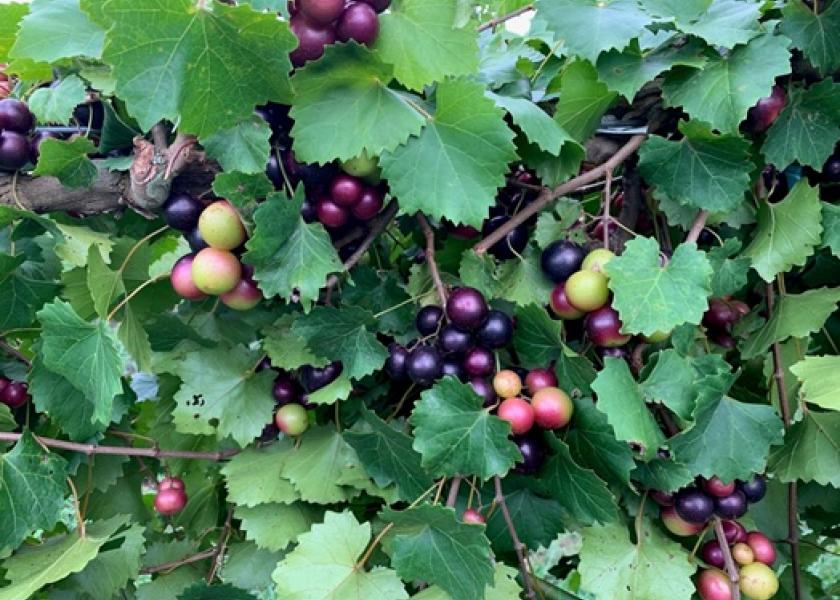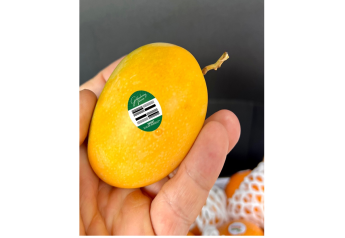Inflation shakes up organic industry

Like their counterparts on the conventional side, grower-shippers of organic produce are reeling under the challenges of inflation — some think even more so.
“Inputs and amendments for organic agriculture are far more expensive than conventional inputs,” said Bridget Kennedy, director of sales and grower relations for New Sprout Organic Farms, Asheville, N.C. “The cost of everything to manage an organic crop has really hit our farmers hard this year. That has to translate into the cost of the product.”
“Our costs continue to increase dramatically,” said Kevin Stennes, organic sales manager for Chelan Fresh, Chelan, Wash.
Fob prices that were profitable several years ago don’t cover costs today, he said.
As growers struggle to remain profitable, some consumers with shrinking disposable income switch to conventional produce rather than pay a bit extra for organic product, Stennes said.
“Costs of every facet of the industry have increased,” said Chris Elmer, vice president of sales for Miami-based Alpine Fresh.
That includes labor, fuel, packaging, fertilizer and transportation, including trucks and vessels.
The inflation rate is well over 10% for the produce industry, he said.
Dealing with increasing costs has been difficult, said Olivia Wong, CEO of Miami-based Fullei Fresh.
“Prior to 2020, we had never seen such large increases or so frequent,” she said. “We have had to pass the costs on to our customers and streamline operations.”
Transportation has had a major impact on business at Oxnard, Calif.-based Boskovich Farms Inc., said Michael Boskovich, who handles organic sales.
Rising fuel costs make transferring product between different growing regions much more costly, he said.
Fortunately for Boskovich Farms, some markets have been showing strong trends, and that has helped curb some inflation costs, Boskovich said.
“We’ve also had to increase our delivered prices to customers,” he added.
In a market-driven industry, grower-shippers can’t always offset their increased costs by simply raising their own prices.
“We are in a commodity market and cannot completely control pricing,” Stennes said. “On our proprietary varieties, we have a bit more ability to control pricing and attempt to keep pricing at profitable levels for the growers.”
Grower-shippers have raised their prices, but not as high or as frequent as their suppliers have, Wong said.
“With each increase we have absorbed some of the impact,” she said.
“If costs don’t cover the inflated expenses, some (growers) could be in jeopardy of going out of business,” Kennedy said. “There’s a long-term trend that organics will continue to be more popular, but right now, there is probably a little bit of a hit that the organic market is taking because of the state of inflation in general.”
“We certainly are cognizant of our increased costs and have to address them, but it’s a supply-and-demand market,” Elmer said. “Sometimes we’re able to get some increases, and sometimes we’re not.”
Opinions vary on whether inflation is showing signs of subsiding.
“It’s hard to say if it reached its peak or not, but our retail business is up,” Boskovich said, “and that may be a result of people eating in more due to the high costs of eating out right now.”
Stennes was not optimistic.
“We are not seeing any signs of inflation slowing down,” he said.
Wong said that, so far, there have been fewer price increases in 2022 than in 2021, but she wasn’t sure that trend would continue.
“I would not be surprised if we see more before year-end,” she said. “We're still seeing small increases here and there, but not that shock seen last year.”
“It doesn’t seem like it’s slowed down yet,” Elmer said.
The prices produce suppliers are able to charge for their products does not keep up with inflation, he said.







